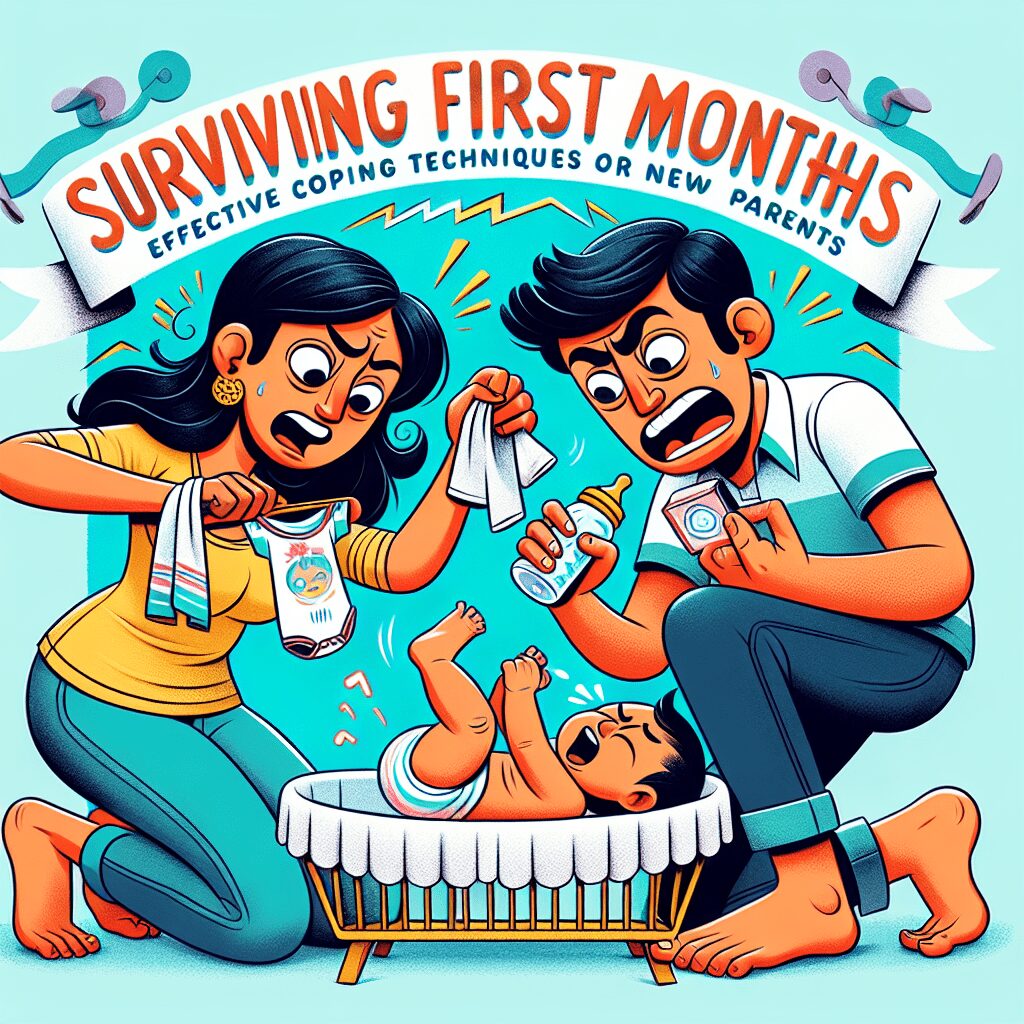Surviving the First Months: Effective Coping Techniques for New Parents
Becoming a new parent is a journey filled with joy, wonder, and challenges. Those first months can often be daunting as you adjust to your new role and the responsibilities that come with it. This article explores effective coping techniques designed to promote emotional well-being, reduce stress, and help new parents navigate this life-changing experience with optimism and strength.
Chapter 1: Understanding the Transition
New parents often face a whirlwind of emotions. The transition from pre-baby life to parenthood is not merely a shift in responsibilities; it is a profound transformation of identity. Emotional responses can vary widely, from ecstatic joy to overwhelming anxiety. Understanding these feelings is essential. Recognize that fluctuations are completely normal. You’re not alone in feeling uncertain or fearful. Embrace your new reality, understanding that each emotion has a role to play in the transition.
Chapter 2: Establishing Support Systems
Building a solid support system significantly alleviates stress. Communicate openly with your partner, friends, and family about your needs and feelings. Create a team that rallies around your family in practical ways. This can include arranging meal deliveries, offering babysitting services, or simply being there to listen.
Here are some ways to establish these support systems:
- Join local parenting groups or online communities.
- Schedule regular check-ins with loved ones.
- Share tasks and responsibilities with your partner.
Chapter 3: Prioritizing Self-Care
Caring for a newborn can consume your time, but self-care is vital. Investing in your well-being allows you to show up fully for your baby. Here are self-care strategies to consider:
- Set aside time for daily relaxation, even if just for a few minutes.
- Engage in physical activity, like stretching or walking.
- Nourish your body with healthy meals.
- Take naps when the baby sleeps.
Chapter 4: Embracing Flexibility
New parents soon discover that strict routines often crumble under the unpredictability of a baby’s needs. Approach your day with flexibility, and be open to adjusting your plans. Understand that each day can unfold differently. Embrace spontaneous moments and learn to adapt without feeling pressured to maintain a rigid schedule. This mindset fosters resilience and reduces frustration.
Chapter 5: Using Practical Organization Techniques
An organized space can reduce chaos, making life with a newborn more manageable. Implement simple organizational strategies, such as:
- Designating a specific changing area stocked with essentials.
- Creating a daily schedule that prioritizes feeding, sleeping, and bonding with your baby.
- Using timers or reminders for activities to help you stay on track.
Chapter 6: Effective Communication with Your Partner
Communication can be the bedrock of a thriving partnership during this challenging time. Openly discuss your feelings, expectations, and concerns with your partner. Regularly check in about household responsibilities and baby care. Here are some ways to enhance communication:
- Have weekly discussions about parental roles.
- Express gratitude for each other’s efforts.
- Share your thoughts and feelings without judgment.
Chapter 7: Cultivating Positive Mindset
A positive mindset can transform your experience as a new parent. Daily affirmations can instill a sense of confidence and reduce stress. Surround yourself with positive influences and uplifting content. Explore practices that foster optimism, such as gratitude journaling. This simple act can help shift your perspective and highlight the joys of your parenting journey.
Chapter 8: Seeking Professional Help When Needed
Seeking help is a sign of strength. If feelings of sadness, anxiety, or frustration become overwhelming, consider talking to a professional. Therapists specializing in postpartum issues can provide tailored strategies. Support groups can also create a safe space to share experiences with others facing similar challenges. Remember, prioritizing mental health benefits both you and your baby.
FAQs
Q1: What emotions can I expect as a new parent?
A: Feelings of joy, anxiety, confusion, and even frustration are all common.
Q2: How can I support my partner during this time?
A: Communicate openly, share responsibilities, and express appreciation regularly.
Q3: What are some easy self-care strategies?
A: Short walks, reading, or taking a warm bath when possible can promote relaxation.
Q4: When should I seek professional help?
A: If feelings of sadness or anxiety become overwhelming or interfere with daily life, consider consulting a therapist.
Q5: How can I cultivate a positive mindset daily?
A: Practice gratitude, seek positive experiences, and engage in uplifting activities that bring joy.
Disclaimer: As an Amazon Associate, I earn from qualifying purchases. I may earn a commission from qualifying purchases as an affiliate. Please note that I only recommend products I believe will provide value to my readers.









